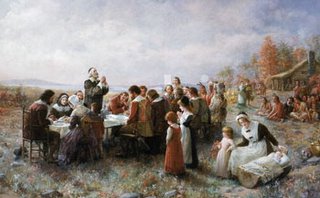2 Chronicles 34 and the Reformation – Part Four (Conclusion)

Rev. Pollema continues from Part Three . . .
Faith Alone (Sola Fide)
“For by grace are ye saved, through faith; and that not of yourselves: it is the gift of God” (Eph. 2:8). Closely related to the principle of grace is the necessity of faith in the Christian life. There is no genuine experience of God’s power apart from faith. However, we are not acceptable to God on account of the worthiness of our faith. First of all, it is not our faith. It is the gift of God. But we can receive the benefits of Christ (perfect satisfaction, righteousness, and holiness) and make those our own in no other way than by faith only (cf. Heidelberg Catechism 60 & 61).
Faith, then, calls for commitment of the whole being to the person and work of Christ. In the words of the Psalmist, to have faith is to “delight thyself also in the Lord; to commit they way unto the Lord” (Ps. 37:4–5). It is to deny oneself and to acknowledge Christ as both Savior and Lord. It is that “hearty trust that . . . forgiveness of sins, everlasting righteousness and salvation are freely given by God, only for the sake of Christ’s merits” (cf. Heidelberg Catechism 21). His is what the Apostle Paul means when he writers: “The just shall live by faith” (Rom. 1:17). And this is what Martin Luther rediscovered when he went back to the Bible. It was the righteousness of Christ, not his own, and that could be received only by faith. It is true faith that holds for truth all that God has revealed in His Word.
Scripture Alone (Sola Scriptura)
The Scriptures must be warp and woof of the individual’s life. It is through
Scripture alone that we come to know Jesus Christ as “the way, the truth, and the life” (Jn. 14:6). In the pages of Scripture we find what we need to know about sin, salvation, and the way of Christian living. The Bible is the only book that authoritatively speaks of the past, present, and future. In its pages are to be found the answers to the problem of sin and man’s greatest need.
It is little wonder that Satan hates God’s Word! From the beginning he has sneeringly asked: “Did God say?” (Gen. 3:1). He fears the Bible because it is the sword of the Spirit against which he cannot stand. His greatest victory today is among those in whom he has planted a seed of doubt, by frank denial or insinuation, in the classrooms of our schools, in the books we read, through Hollywood and the mass media, and yes, from the pulpit itself. God speaks to us today through the prophet Jeremiah:
“The wise men are ashamed , they are dismayed and taken; lo, they have rejected the word of the Lord; and what wisdom is in them?” (Jer. 8:9).
To the believer the Word also speaks:
“For ever, O Lord, thy word is settled in heaven. The entrance of thy words giveth light: it givith understanding unto the simple.” (Ps. 119:89, 130).
Christ Alone (Solus Christus)
As one looks back at grace alone, faith alone, and Scripture alone, it becomes abundantly evident that each one centers upon Christ alone. “Neither is there salvation in any other; for there is none other name under heaven given among men, whereby we must be saved (Acts 4:12). “But of him are ye in Christ Jesus, who of God is made unto us wisdom, and righteousness, and sanctification, and redemption: that, according as it is written, He that glorieth, let him glory in the Lord” (1 Cor. 1:30–31).
Today God’s Word needs to be rediscovered. We have to go back to the Bible. The dust-laden Bible upon the shelf, the oft talked about but undigested Word, the reinterpreted Word resulting from some new hermeneutic—the Word is just as much lost and forgotten today as it was in the days of Josiah. God’s Law, His will for the people, needs to be read and reread in the hearing of all if they are to be brought to a knowledge and sorrow for their sins. How refreshing it would be to have those who aspire to lead this country refer the people to the Law of the Lord and encourage them, as did Josiah, to abide by it. Since that seems extremely unlikely, may it begin with us. May our response to this Word be that of the Psalmist, even as it must have been for the people of Josiah’s day and for the Reformers of the sixteenth-century Reformation: “I rejoice at they word, as one that findeth great spoil” (Ps. 119:162).
Labels: Doctrine of Salvation, Doctrine of Scripture, History








